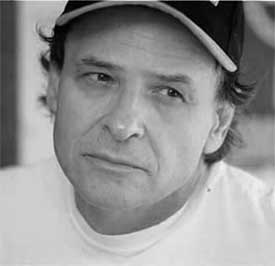
This poem was a mixture of horrible things people go through, how people are not doing enough to change the world, and how his writing has released him from the pain he once held inside. I feel that Sam Hamill’s poem The Necessity to Speak might have been the worst thing I have ever read. I tried to read this many times with a positive view but I just couldn’t. The very first line of his writing puts me in a bad mood. “And yet we go on living closed lives, pretending we are not personally responsible for the deaths we buy and sell.” With that one line he is saying that everyone (including you and me) doesn’t care about the pain we cause other. That statement is outrageously offensive to me; Sam Hamill doesn’t know what I think about or care about for that matter. He also never says if he considers himself apart of everyone, if he also lives his life ignoring all that is wrong with the world. The way interpreted this poem Sam feels he is better than everyone. I just picture his thoughts go something like this; I went through so much being abandoned, in and out of jails, being raped, and seeing the devastation of war but now my writings are helping people with their issues, man I’m so much better than everybody else who keeps their pain inside.
If I could meet this man and talk to him maybe he could explain his writings in the way that I hope he meant for them to be read. That deep down when he wrote this he was just trying to help people by showing writing can make them feel better and that people should try and do more to help others and stop violence. This is just my wishful thinking because I can’t stop thinking that he is a pompous poet. I disagree with some of his beliefs too. He talks about how on TV that he sees people hitting women and kids getting spanked teaches them hitting others are ok. People need to grow up and take responsibility for their actions; stop blaming movies, music and video games for your mistakes. If thoughts things made people violent I would see more people jumping on turtles.
I just want to end with saying again I really hope that
Sam Hamill had good intentions, but I just couldn’t see them. The way I took his words are the way they sounded to me. Pain can be eased if someone writes about it. But that doesn’t mean if people with pain don’t write or speak up are assisting with the crime. As long as the person themself is no longer feeling the pain or letting the crime happen to them then that is good enough because sometimes sharing that story with another only hurts you more.
photo from
http://www.simplyhaiku.com/SHv3n2/images_contributors/sam_hamillSM.jpg



